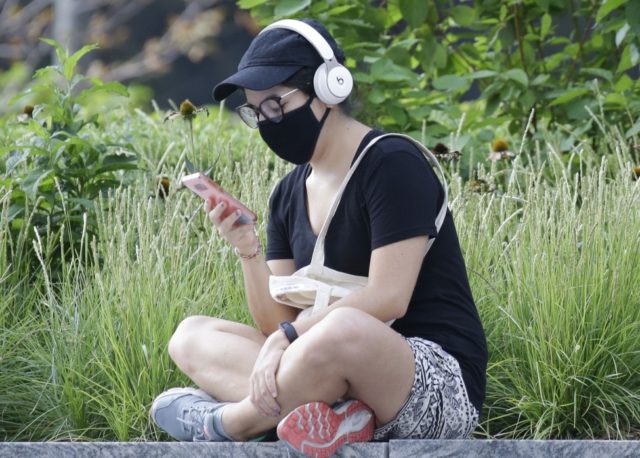Oct. 5 (UPI) — Women are more likely to adhere to guidelines from medical experts to prevent the spread of the COVID-19 pandemic than men, according to a study by researchers at Yale University and New York University.
Among the guidelines women followed more, were maintaining 6 feet social distance, handwashing and mask wearing in public, according to the study, published this week in Behavioral Science and Policy.
In previous findings, women have also been more likely to follow preventative practices, researchers noted.
“Previous research before the pandemic shows that women had been visiting doctors more frequently in their daily lives and following their recommendations more so than men,” lead author Irmak Olcaysoy Okten said in a press release.
“They also pay more attention to the health-related needs of others. So it’s not surprising that these tendencies would translate into greater efforts on behalf of women to prevent the spread of the pandemic,” said Okten, a postdoctoral researcher in New York University’s Department of Psychology.
The researchers findings were based on three studies.
In the first study, 800 participants were surveyed. Women, compared with men, reported more social distancing, handwashing, staying at home and less frequent contact with family or friends.
For the second study, researchers observed 300 pedestrians in three different Northeastern U.S. locations and found a greater percentage of women than men wore masks in public.
In the third study, researchers used anonymous county level GPS data from 15 million smartphones per day collected from March 9 through May 29, which showed that counties with higher percentages of women exhibited greater social distancing.
Women also reported more negative emotions — anxiety related to the pandemic — than men did.
The gender-based differences remained after researchers took into account COVID-19 cases per capita in these counties, the presence of stay-at-home orders and other demographics, such as income, education and profession.
Other research has recently found political conservatives engage in less social distancing than liberals and feel less responsible for the prevention and spread of the virus, the study noted.
Researchers said that when they controlled for conservatism, the results remained significant in most cases, but also acknowledged that men in the first study sample were more conservative.
“These results suggest that some latent factor underlying male gender and conservatism may have influenced our results,” researchers said in the study.
“In the future, researchers should test whether psychological constructs related to both maleness and conservatism — for instance, a greater sense of power, more assertiveness or greater feelings of autonomy and independence — help explain the observed gender differences,” they wrote.

COMMENTS
Please let us know if you're having issues with commenting.